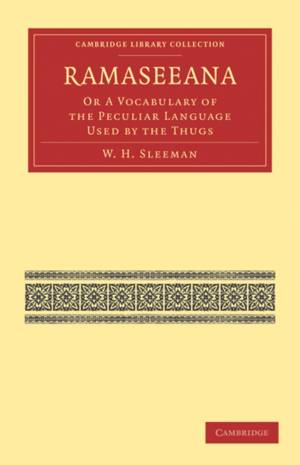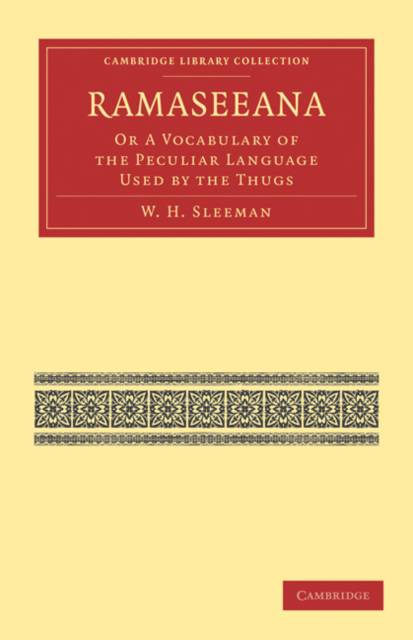
- Afhalen na 1 uur in een winkel met voorraad
- Gratis thuislevering in België vanaf € 30
- Ruim aanbod met 7 miljoen producten
- Afhalen na 1 uur in een winkel met voorraad
- Gratis thuislevering in België vanaf € 30
- Ruim aanbod met 7 miljoen producten
Zoeken
€ 149,95
+ 299 punten
Omschrijving
Thugs, or thuggees, were members of secretive gangs that robbed and sometimes murdered travellers in India; they were also said to worship the Hindu goddess Kali. The British colonial administrator William Henry Sleeman (1788-1856) took a special interest in these gangs and mounted a campaign to eradicate them. Between 1826 and 1840 thousands of Thugs were imprisoned or hanged. The outcome of the operation was due in part to Sleeman's focus on gathering intelligence about the gangs' coded communications. This substantial vocabulary, published in 1836, was compiled from conversations with informers and interrogations of prisoners. It includes words such as adhoreea, which means an intended victim who escaped being murdered, or dhurohurkurna, which is the verb 'to strangle'. The book contains much fascinating data for linguists and historians, and includes an appendix of cases and depositions that constitutes a useful source on crime in colonial India.
Specificaties
Betrokkenen
- Auteur(s):
- Uitgeverij:
Inhoud
- Aantal bladzijden:
- 824
- Taal:
- Engels
- Reeks:
Eigenschappen
- Productcode (EAN):
- 9781108028752
- Verschijningsdatum:
- 2/06/2011
- Uitvoering:
- Paperback
- Formaat:
- Trade paperback (VS)
- Afmetingen:
- 140 mm x 216 mm
- Gewicht:
- 1025 g

Alleen bij Standaard Boekhandel
+ 299 punten op je klantenkaart van Standaard Boekhandel
Beoordelingen
We publiceren alleen reviews die voldoen aan de voorwaarden voor reviews. Bekijk onze voorwaarden voor reviews.











